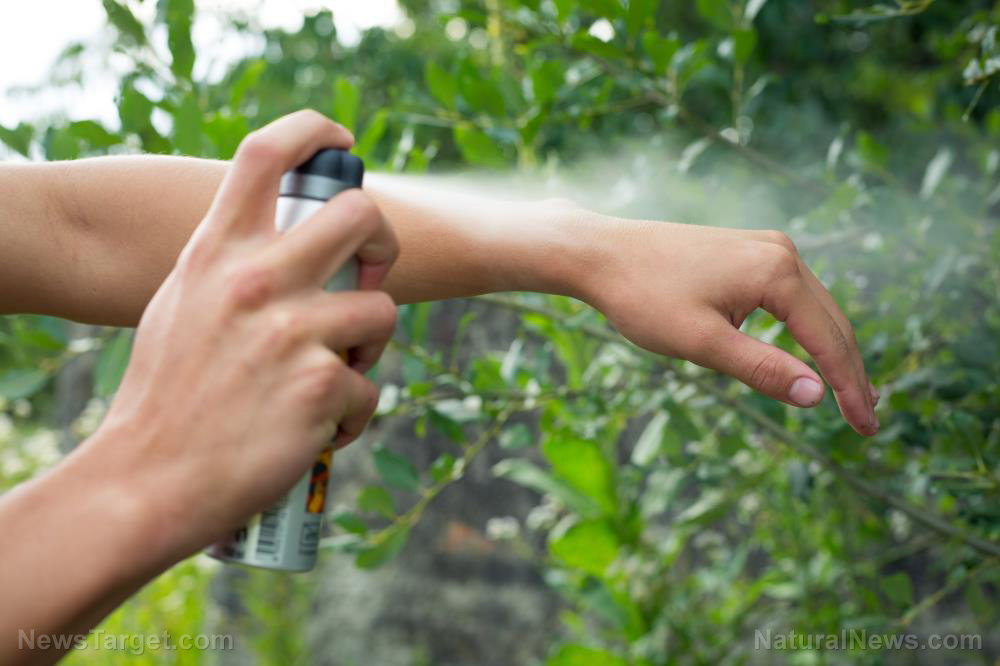Oral health: 10 Natural remedies for dental plaque and gingivitis
01/05/2023 / By Olivia Cook

Here are 10 science-backed natural remedies for microbial plaque, which is known as the most important causative agent for periodontal disease – an inclusive term for the inflammatory condition of gingiva (gingivitis) and/or periodontium (periodontitis).
Aloe vera
A study published in the journal Oral Health and Dental Management showed that aloe vera mouth rinse is equally effective in reducing periodontal indices as chlorhexidine, an antiseptic and disinfectant used to help reduce the number of germs (bacteria) in your mouth.
Results after mouth rinsing twice a day for 30 days demonstrated a significant reduction of gingival bleeding and plaque indices in 115 test subjects using mouthwash containing aloe vera and the 115-control group using chlorhexidine.
Asafetida
Results of a study published in the European Journal of Integrative Medicine demonstrated the efficacy of asafetida (a key ingredient in Indian cuisine) for improving the indices of gingival health, such as gingival color (redness), contour and spontaneous bleeding. (Related: Natural mouthwashes clean your mouth just as well as chemical ones WITHOUT the side effects.)
Clove
A study published in the Indian Journal of Pharmaceutical and Biological Research indicated that eugenol has germicidal properties that make clove oil very effective for relieving dental pain, toothache, sore gums and mouth ulcers.
In addition, gargles with diluted clove oil help in easing the throat and its characteristic smell helps remove bad breath.
Garlic
A study published in the Journal of Medicinal Food revealed that allicin, the active ingredient in garlic, inhibited the growth of oral pathogens associated with dental caries and periodontitis, such as Streptococcus mutans, Porphyromonas gingivalis, Actinobacillus, Actinomycetemcomitans and Tannerella forsythia. (Related: A list of effective natural treatments for gingivitis.)
Green tea
A study published in the Journal of Indian Society of Periodontology suggested that green tea, with its health-promoting flavonoids, including catechins and their derivatives, promotes periodontal health by reducing inflammation, preventing bone resorption and limiting the growth of certain bacteria associated with periodontal diseases. (Related: Eat your way to good oral hygiene with an anti-inflammatory plant-based diet.)
Guava
A study published in the journal Pharmacognosy Review pointed to the common guava as one of the plants used in Ayurveda in the form of mouthwashes and toothpaste to control plaque, which causes gingivitis.
Guava leaves contain two important flavonoids – quercetin (known for its spasmolytic, antioxidant, anti-microbial and anti-inflammatory actions) and guaijaverin (known for its anti-bacterial action. The fruit pulp contains ascorbic acid, which is essential in preserving periodontal health, according to a study published in the Journal of the Canadian Dental Association.
Pomegranate
A study published in the Journal of Indian Society of Periodontology referred to pomegranate as “Nature’s power fruit,” because it possesses “a vast ethnomedical history and potent antibacterial, antiviral, antioxidant and anti-inflammatory properties for the treatment of periodontal disease.”
Researchers indicated that the antibacterial quantities in pomegranates lower the chances of developing tooth decay and gum disease by preventing plaque.
Probiotics
A randomized controlled study published in the journal Contemporary Clinical Dentistry instructed school children aged 12 to 15 in Jaipur, Northern India, to mix commercially available freeze-dried probiotics powder in 30 milliliters of water and swish once daily for three minutes for three weeks.
Using the Turesky-Gilmore-Glickman plaque index, results showed that the use of the probiotic mouth rinse improved oral health in children by significantly reducing plaque and gingival scores.
Sage
A study published in the Iranian Journal of Microbiology demonstrated the antibacterial effect of sage extract mouthwash against Streptococcus mutans, which is the primary pathogen responsible for initiating dental caries and decay.
Scientists explained that the presence of sucrose stimulates S. mutans to produce insoluble glucans and form an oral biofilm, also known as dental plaque, to initiate caries lesions.
Turmeric
A study published in the National Journal of Maxillofacial Surgery indicated that turmeric gel can be effectively used in the prevention of plaque control and gingivitis – pointing to turmeric’s most active constituent curcumin, which has been touted for its antioxidant, anti-inflammatory, antiviral, antibacterial antifungal, antiseptic and analgesic properties.
Visit HolisticDentistry.news to learn more about how to support oral health naturally.
Watch the following video to learn about the natural treatment for gingivitis.
This video is from the Holistic Herbalist channel on Brighteon.com.
More related stories:
Prepper tips: 10 ways to maintain oral hygiene in the wilderness.
Antioxidants and probiotics for better oral health: Natural remedies for gingivitis.
Build a survival dental kit to maintain dental hygiene even when SHTF.
Sources:
Submit a correction >>
Tagged Under:
alternative medicine, Bad Breath, dental caries, dental hygiene, food cures, food is medicine, gingivitis, Green tea, gum health, herbal medicine, Herbs, Holistic Dentistry, mouthwash, natural antibiotics, natural cures, natural medicine, oral health, periodontal disease, plaque periodontitis, probiotics, tooth decay, turmeric
This article may contain statements that reflect the opinion of the author
RECENT NEWS & ARTICLES
COPYRIGHT © 2017 NATURAL CURES NEWS




















